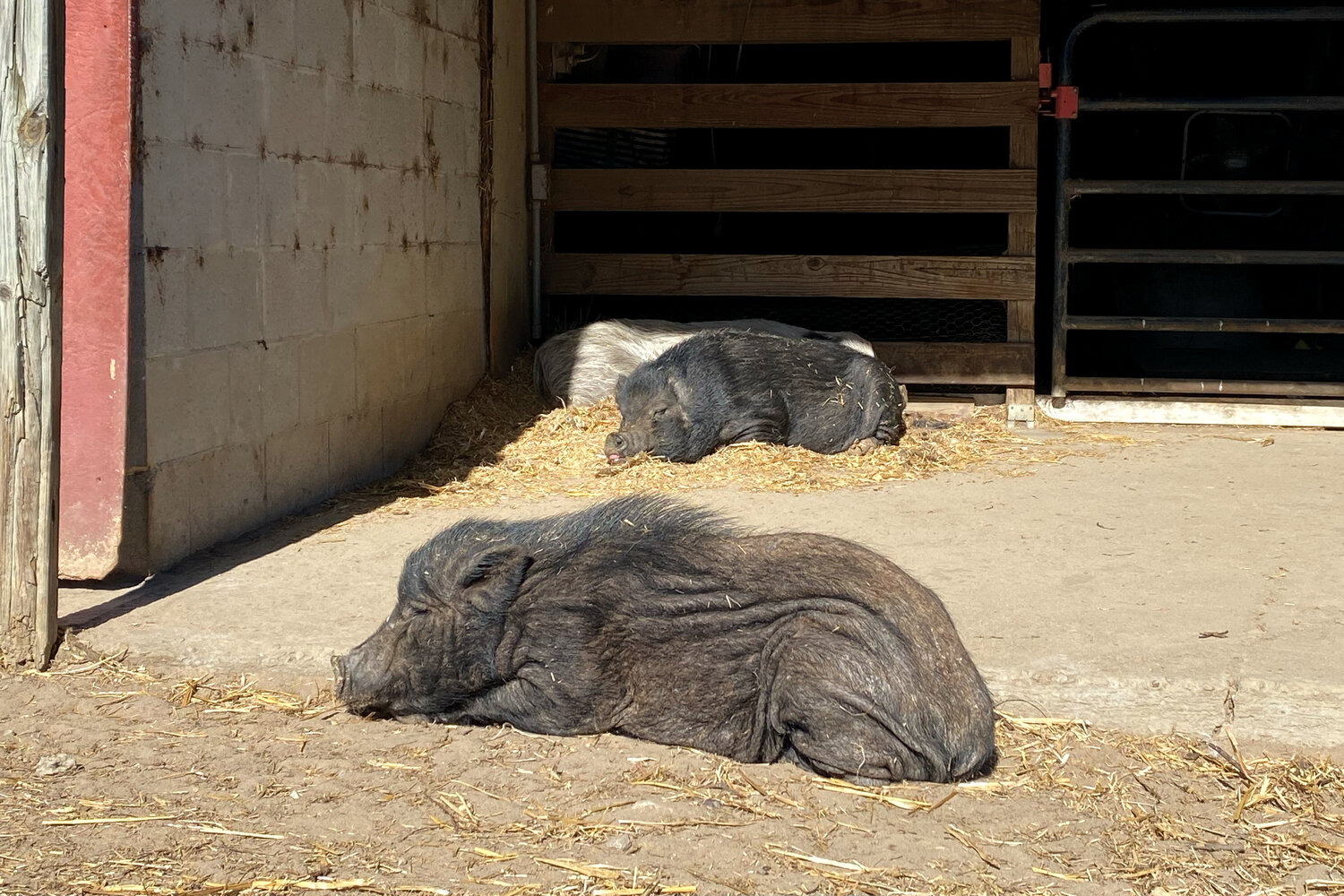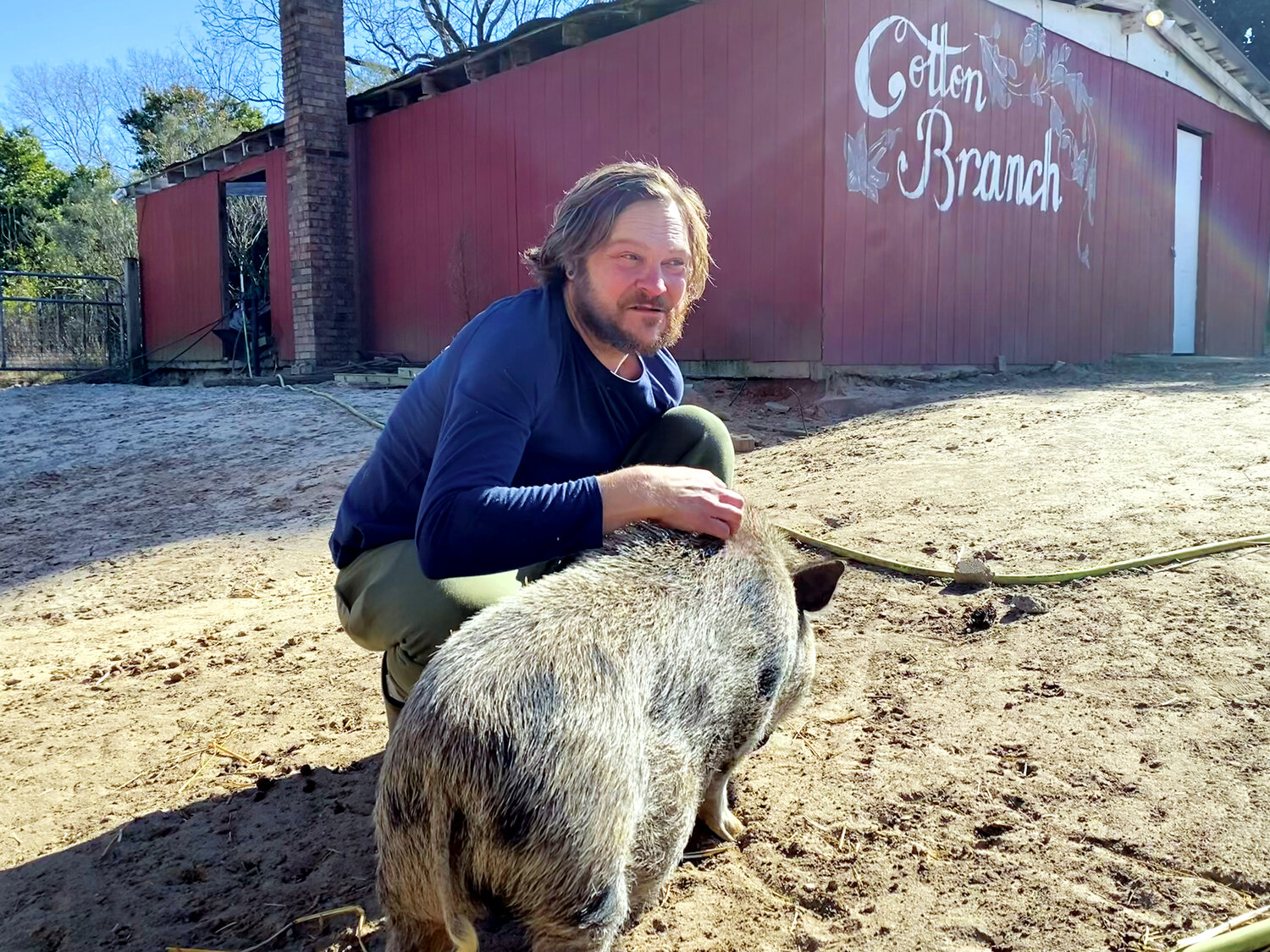Supported by community, Batesburg-Leesville farm sanctuary cares for 200 potbelly pigs
Just down the road from downtown Batesburg-Leesville is an animal sanctuary like no other. Cotton Branch is home to more than 200 surrendered animals from across the U.S. The thing that sets them apart is the farm’s potbelly pigs.
This item is available in full to subscribers.
Subscribe to continue reading. Already a subscriber? Sign in
Get 50% of all subscriptions for a limited time. Subscribe today.
Please log in to continueNeed an account?
|
Supported by community, Batesburg-Leesville farm sanctuary cares for 200 potbelly pigs
Just down the road from downtown Batesburg-Leesville is an animal sanctuary like no other. Cotton Branch is home to more than 200 surrendered animals from across the U.S. The thing that sets them apart is the farm’s potbelly pigs.
Cotton Branch opened in 2004 when Jan Alber-Senn turned a small piece of land into a home for neglected, abused, disabled and surrendered pigs. Cotton Branch was the only shelter to accept potbelly pigs in the Carolinas for years.
Now, the sanctuary has a booming population, with more than 40% of its animals ready for adoption.
“We have about 200 pigs on the farm and about 80 of them are adoptable,” said Josh Carpenter Costner, owner of Cotton Branch. “I really enjoy what I do, giving these animals a home, it’s wonderful.”
Josh and his husband, Evan Costner, took over the nonprofit farm in 2017 when they moved away from their city life in Charlotte to embrace the small town in the Southwest region of Lexington County.
“It all started because we owned a potbelly pig of our own,” Costner said. “We moved down to take over as the succession plan when the previous owners decided to retire.”
From that point, the Costners deeply ingrained themselves in the Batesburg-Leesville community.
They owned Homeland Craft Beer & Wine for many years before selling, and in early January the couple opened the first yoga studio in town, Freedom Yoga & Wellness.
Much of the farm's population comes from a hoarding bust in the mountains of Kentucky, where more than 500 pigs were found in abrasive conditions.
“We were told about the case as we were leaving to go on vacation,” he said. “We spent our entire vacation planning how we would approach the situation.”
Costner was given a month's notice that any pig left on the farm would be euthanized if not reduced, and more than five organizations volunteered their resources to save the pigs. All but two were saved, and an abundance of internal tumors led to their euthanization.
The sanctuary brought 225 pigs to the farm in September 2018.
“Between 2019 and 2020, we were able to adopt out about 100 of the pigs from the hoarding case,” Costner said.
The farm averaged about 200 adoptions before 2021, but when the COVID-19 pandemic began, the farm put adoptions on hold.
The hold on adoptions continued in 2023 to test the animals for genetic illnesses. Animals with disabilities are taken off the adoption list and moved to be permanent residents of Cotton Branch.
“We don't adopt out any animal with medical issues or special needs and we don't adopt out the seniors,” Costner said. “The animals with medical issues have a lot more responsibility that comes with them so we take love and care of them instead.”
The farm doesn’t allow just anyone to adopt. There is a rigorous process for potential adopters to go through to be considered.
Not only do potential adopters need to be above the age of 21, but Costner said the farm also looks at residential zoning, outdoor environments and indoor spaces.
“We’re very thorough because we don't want to see them end up in a similar situation, having to come back and lose a family,” Costner said.
The farm's approval rating for adoption is typically between 8% and 10%, he added.
For those who aren’t able to adopt a pig, the sanctuary has a sponsorship program through which community members can sponsor a pig with a monthly pledge. Sponsored pigs are not adoptable but are available for sponsors to visit regularly.
Tom Minor has been sponsoring pigs since 2018 when the sponsorship program started. He sponsors six pigs, and his wife sponsors two others.
“It's something I wanted to do because I feel that what Cotton Branch provides is extremely important in terms of providing safe refuge and haven for farm animals that come from bad situations,” Minor said. “It's wonderful to see them in this safe environment where they have lots of room to roam around. They have their piggy friends and they're living their lives in peace and comfort.”
Minor visits the farm once or twice every few months, but he never visits empty-handed.
“I always bring the animals treats, usually it is animal crackers and sometimes fruits and vegetables,” he said. “We try to feed as many of the pigs and the other animals as we can with treats.”
The farm had 120 pigs sponsored during December. Sponsorship contributes to each pig's annual expenses, which range from $600 to $900, not including emergency vet visits if the animal becomes ill.
Costner said that his major obstacle is finding funding for the farm.
“The price of feed has gone up, the price of hay and medications have both gone up about 30%,” he said. “When our donations remain the same but expenses increase, it’s difficult to ignore.”
Cotton Branch isn’t the only nonprofit to see a decline in donations.
Charitable donations totaled $499.3 billion in 2022, a 10.5% drop when adjusted for inflation, according to Giving USA. Giving USA has not yet released 2023 statistics for nonprofit donations.
“We are completely a grassroots organization, so we don't have major donors,” Costner said. “There are very few grants available for our type of organization and a lot of those end up going to people with grant writers on staff, we don't have that. Our typical donation is $20 to $25.”
The farm raised more than $180,000 in 2022 and hasn’t yet totaled how much was raised in 2023, he explained.
Donor retention has also declined on the national scale. Those rates dropped nearly 20% in early 2023, according to the Effective Fundraising Project. This is one of the largest drops in donor retention since 2012.
“With fewer people giving, it's been stressful,” Costner said. “We try to do a lot of events that bring people out here. We also do fundraising events in town which brings us to the community.”
The sanctuary plans to partner with Costner’s new business Freedom Yoga & Wellness to host pigs and yoga in March. The event will allow participants to visit Cotton Branch and practice meditating with four-legged friends.
“We love having people here, it gives people the chance to see how sweet the pigs are but it also helps us educate the community,” Costner said.
Keywords
cotton branch farm sanctuary, batesburg-leesville potbelly pigs, lexington county nonprofit, columbia charity, midlands animalsOther items that may interest you










Comments
No comments on this item Please log in to comment by clicking here